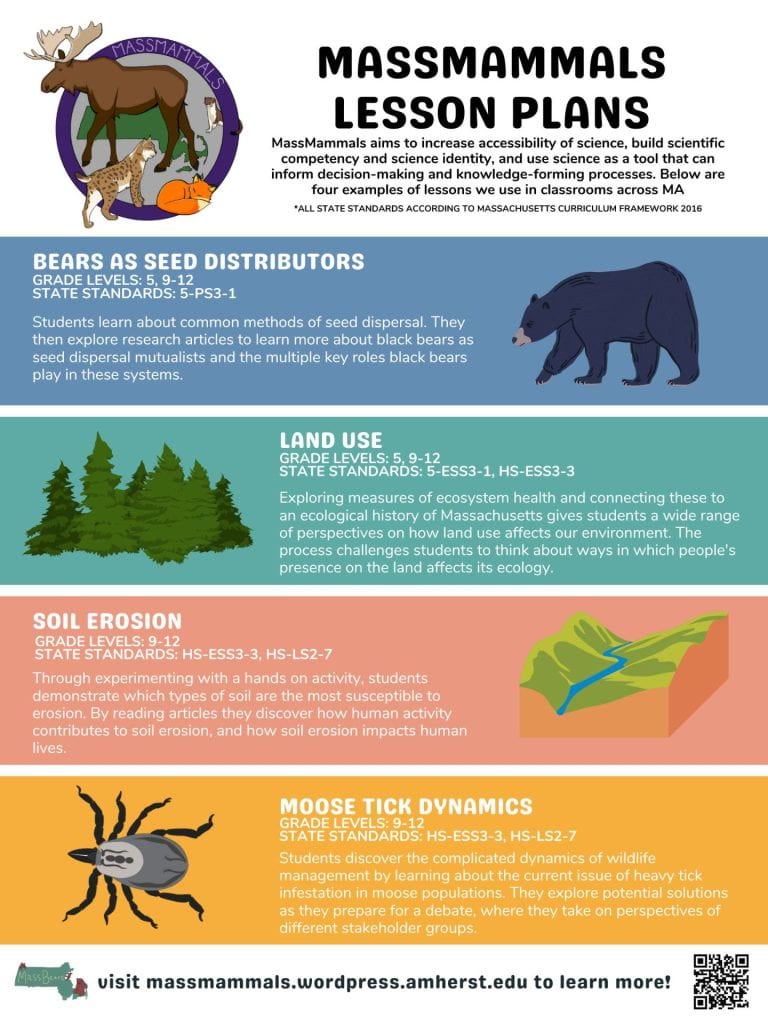We are also engaging elementary through high school classrooms in joining us to do scientific research. Below you can find samples from our past work and example lessons. Please reach out to us at citsciedu@amherst.edu if you are interested in joining our project or with any questions or concerns. We look forward to getting in contact with you!

What are the benefits of Citizen Science in the classroom?
Incorporating Citizen Science projects into a classroom setting gives students a unique opportunity to engage in real scientific research. Through experiential learning, they will actively learn about and work through multiple parts of the scientific process. This allows students to develop a wide breadth of skills, including critical inquiry, team-based collaboration, and communication.
Further, participating in authentic research provides students a window into the research world. It breaks down barriers to science, allowing students to be a part of the scientific community themselves. Engaging with research also allows students to develop a strong grasp of the scientific and data analysis content. Further, by making research more accessible, students who might have otherwise been intimidated by research may feel that they can pursue scientific careers in the future. Learning about the complex ecosystems in their own backyards or around their school will also can provide students with a greater awareness of conservation issues and connection to other organisms, and encourage them to support community conservation efforts in the long run.
We published a paper that presents our findings on the multi-level benefits of community science education in a classroom setting, linked here. We are currently exploring the impact in greater detail and look forward to updating you when that work is published.

“It shows people that science isn’t just for professionals in labs. It tells kids, ‘You can do science too, even at six years old.’ I think part of why I lacked confidence in science growing up was because I never had that message. But through Mass Mammals, we’re delivering it loud and clear. We’re helping broaden kids’ ideas of what science looks like and who scientists can be.” – MassMammals Education Team Member 2025
What do we do?
We work closely with teachers to implement Citizen Science in their classroom. This generally involves several components, which we will describe here. We can modify the plans at any point to fit your needs, and we are always working to develop new, engaging teaching methods. If you have any ideas or proposals on how you want to work with us, please feel free to contact us!
The first component is the trail camera project. This project includes two lessons: an Introductory Lesson and a Final Lesson, which introduces citizen science concepts and trail camera research. In order to participate in this research, you can apply to get a trail camera from us, or use one of your own. You can set up the camera in an area near your school. Around once per month, you and your students will collect photos from the camera and send them to us. The data you collect will be incorporated into our research and directly used to answer questions about mammal distributions around Massachusetts!
The second component is our ecology lessons. Some of these lessons engage students in interactive case studies, where they will have the opportunity to work with the data that they’ve collected, developing unique hypotheses and getting feedback on the process. To introduce relevant content to students, we can develop engaging lesson plans that follow state education standards and fit your needs. You can choose any lessons that integrate well into your curriculum.
Members from our team look forward to meeting with you to discuss how we can best implement our program into your classroom.

You must be logged in to post a comment.